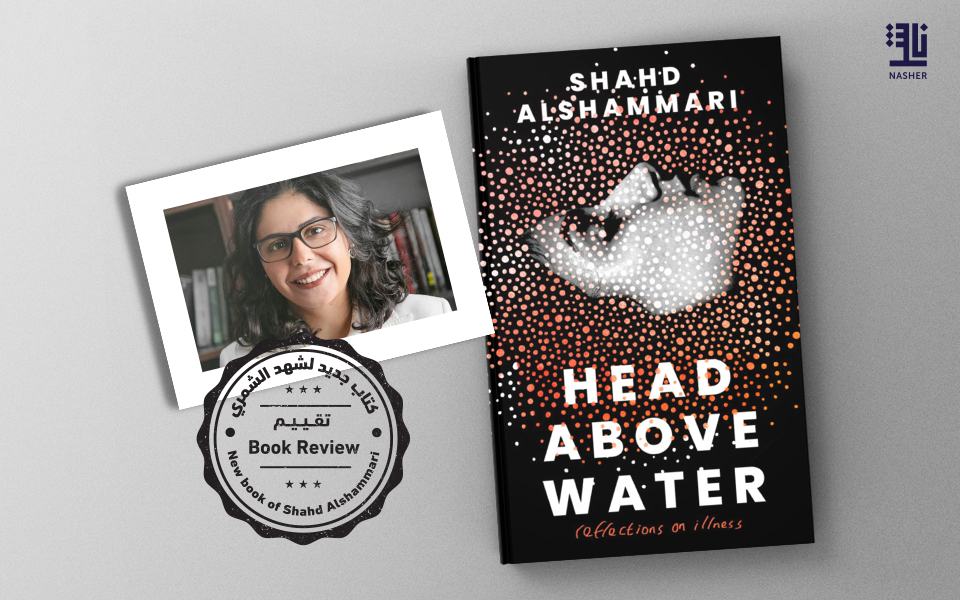I was an 18-year-old who fell asleep one random night and woke up the next day with complete numbness all over my body,” Just like that Dr. Shahd Alshammari’s life was changed forever as her life took a different direction, one that has a complicated path, accompanied by Multiple Sclerosis (MS) and chronic pain.
Head Above Water invites the reader into this journey as we accompany the narrator through her low points and successful triumphs, we, the readers are her confidante. She bears her soul to us as she struggles to understand and accept her condition, MS as we learn is unpredictable; what you can do at night you might battle to do in the morning, even the label of ‘disabled’ is hard to adopt as no one can see the hidden disability that our narrator carries. “I can’t see life as one moment that leads to another. It’s a lot more disjointed. One moment you’re disabled, the next you’re fine. One moment your vision is superb, and the next you’re batting your eyelashes frantically, wishing that the dust specs would go away. But nothing goes away unless it wants to. You can’t wish it away.” It is this instability that strikes a cord with readers who live with some sort of disability or chronic pain as you never know what the next day or hour will be like.
Each chapter begins with an excerpt from Dr Alshammari’s past journals as she speaks to her ex-student and close friend Yasmine about disabled bodies, relationships, love, language, and identity. The book at times seems like a never ending battle between the narrator, society and identity.
Head Above Water is not a memoir but a reflection on illness and it doesn’t just focuses on the narrator’s journey but divulges into the stories of some of her students and peers whose lives have been affected by illness. One woman, who has an autistic daughter, finds herself a single mother after her husband completely denies their child’s diagnosis. Another woman who struggles with endometriosis, makes the ultimate decision to have her uterus removed, resulting in her husband feeling “betrayed”. Most of these stories if not all are of women who had to fight at two fronts; illness and society.
In Arab societies, a woman writing and sharing what is personal is still considered a bold move by many, particularly a woman writing about her disability and illness so openly, which does put a limit on what can be ‘shared’. Head Above Water excels in exploring the mental and emotional scars of being a mixed race disabled woman in a very traditional and patriarchal society but the book fails to dig deep into more taboo topics such as relationships and marriage. It is not a criticism but an observation, which is indictive of how far Arab women have come but there is still more to do.
If you are not familiar with English literature you might struggle to connect with parts of the book or even understand it, which may suggest the author is directing Head Above Water at certain readers but not all, which did let the book down as not everyone is familiar with renaissance drama or Victorian literature.
Head Above Water is a must read, though it can be a difficult read at times, there is no fairtyale ending but one that will bring some sort of peace. We give it 4/5.
Head Above Water was published by Neem Tree Press on May 30, World MS Day.







